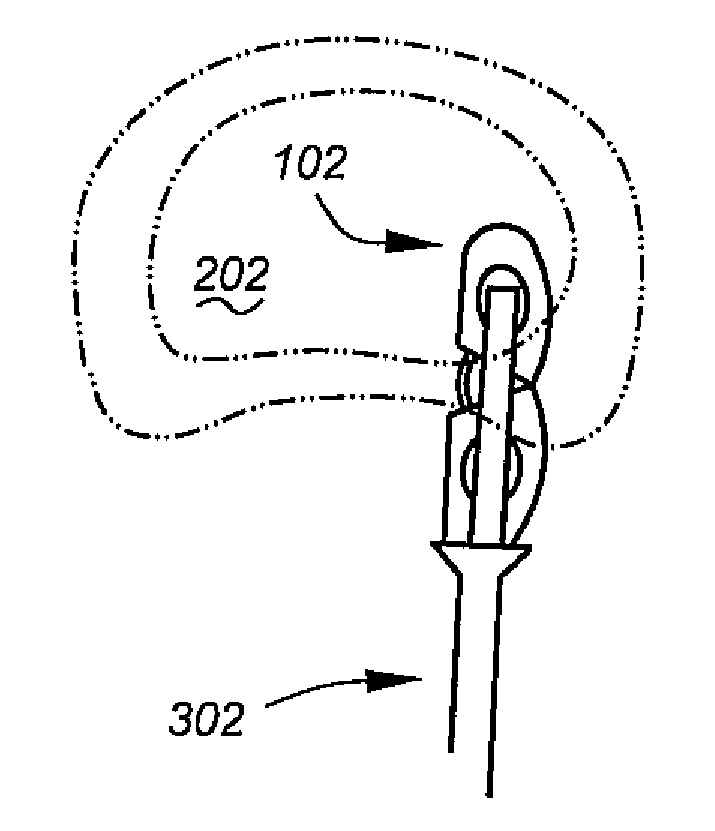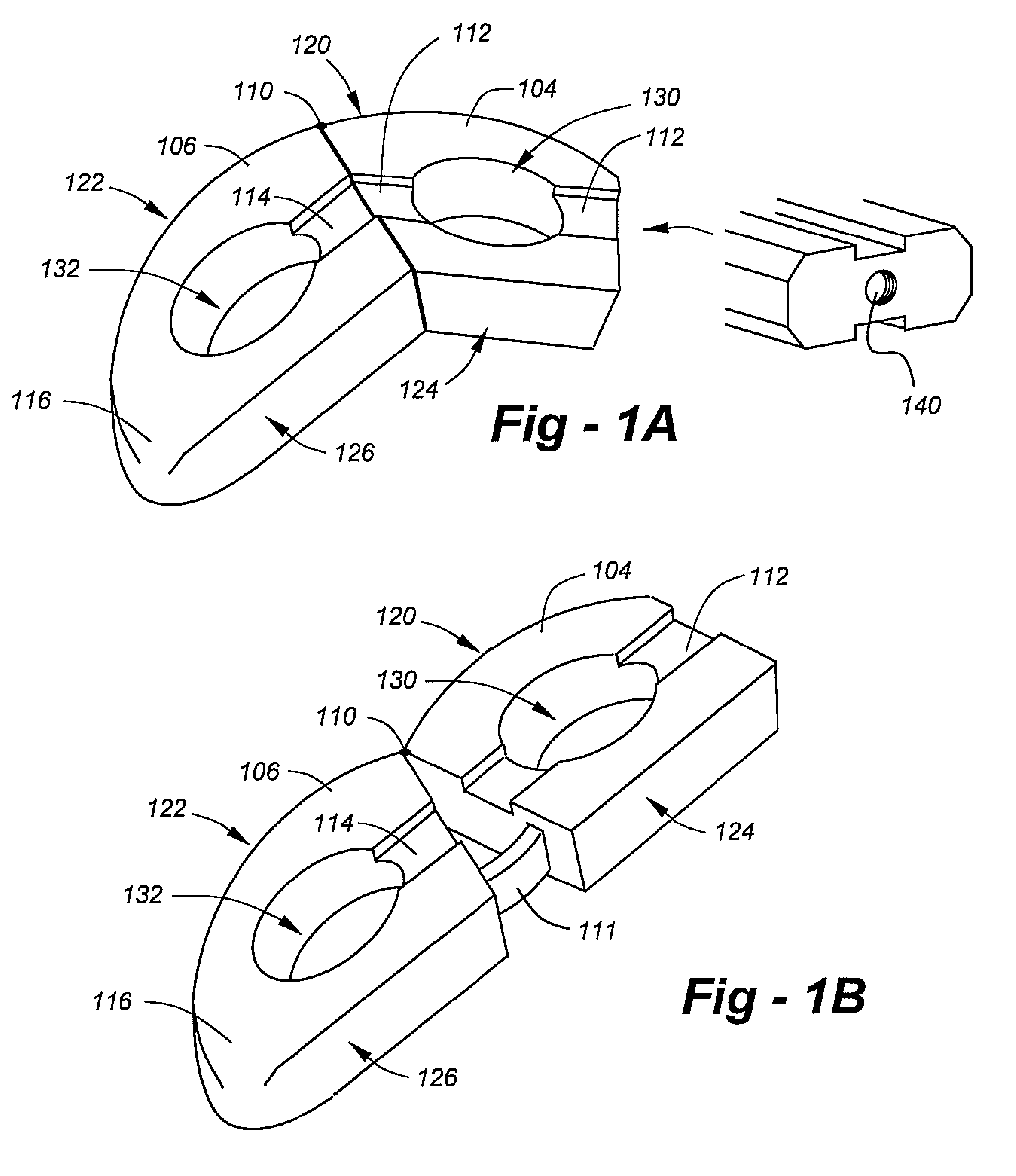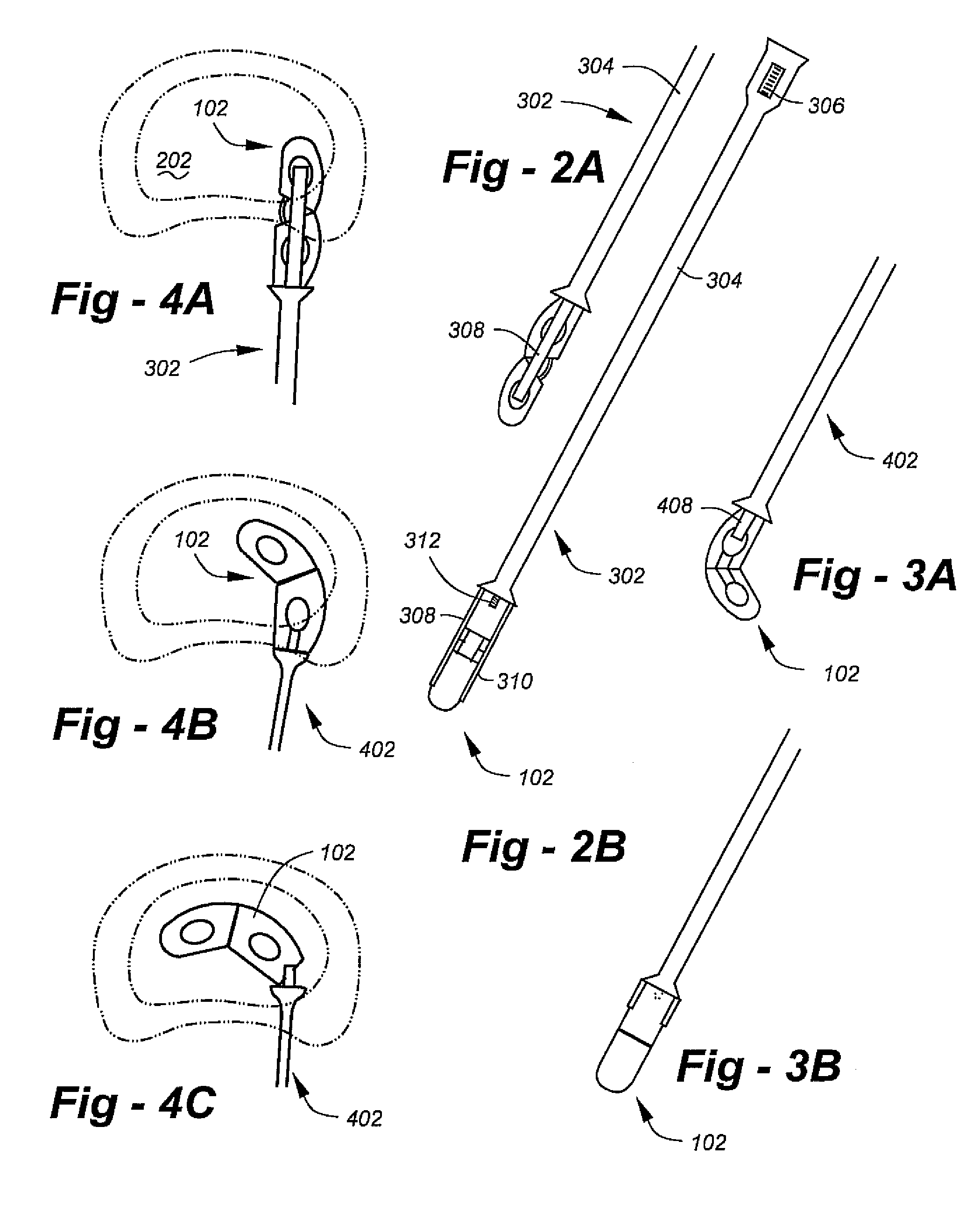Steerable interbody fusion cage
a fusion cage and interbody technology, applied in the field of intervertebral cages, can solve the problems of increasing the morbidity of anterior in-situ cage placement, large dissection, plif and tlif approaches, and weakening existing posterior elements, and achieves the effect of minimal invasiveness and bone-sparing
- Summary
- Abstract
- Description
- Claims
- Application Information
AI Technical Summary
Benefits of technology
Problems solved by technology
Method used
Image
Examples
Embodiment Construction
[0027] Making reference to the drawings, FIG. 1A is an oblique view of the preferred embodiment of the invention in a folded condition depicted generally at 102. The implant comprises a proximal portion 104 and a distal portion 106 joined by a hinge 110. Both portions include voids 130, 132 facilitating the introduction of bone graft and other biologic and or therapeutic substances. The proximal portion 104 includes a longitudinal recess 112, and the distal portion 106 includes a longitudinal recess 114. As shown in the end-view drawing at the right of FIG. 1A, these recesses are provided on the upper and lower surfaces of each portion. The end-view drawing also shows a central threaded hole 140 used for initial introduction.
[0028] In the preferred embodiment, the ‘outer’ surfaces 120, 122 of the respective portions 104, 106 are curved such that in the folded state of FIG. 1A a continuous outer surface is established. Although this is not necessary to the invention, curved surfaces...
PUM
 Login to View More
Login to View More Abstract
Description
Claims
Application Information
 Login to View More
Login to View More - R&D
- Intellectual Property
- Life Sciences
- Materials
- Tech Scout
- Unparalleled Data Quality
- Higher Quality Content
- 60% Fewer Hallucinations
Browse by: Latest US Patents, China's latest patents, Technical Efficacy Thesaurus, Application Domain, Technology Topic, Popular Technical Reports.
© 2025 PatSnap. All rights reserved.Legal|Privacy policy|Modern Slavery Act Transparency Statement|Sitemap|About US| Contact US: help@patsnap.com



